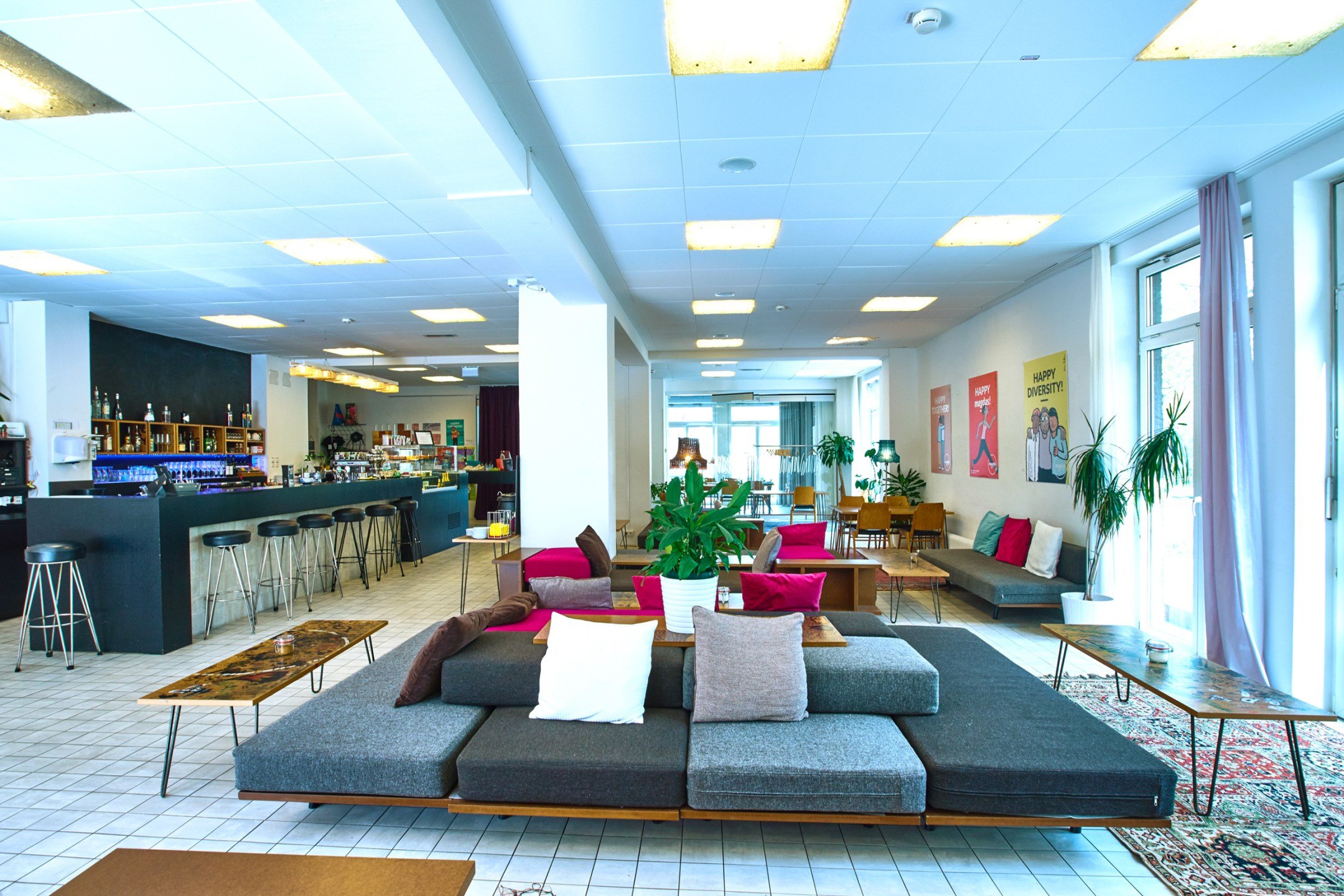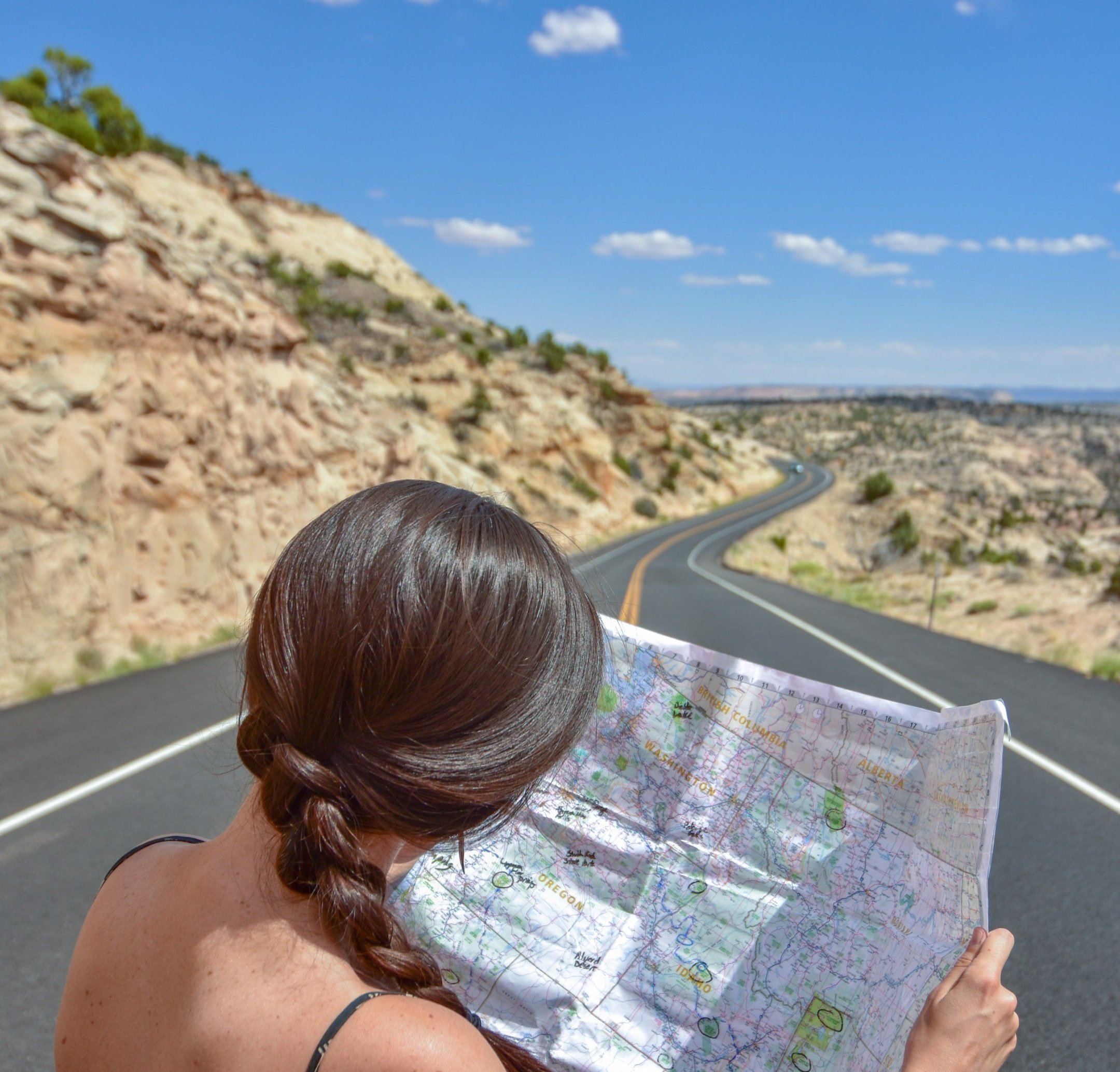Sustainable Hotels: 7 Awesome Earth-Friendly Places We Want to Stay
Like many travelers, I spent most of my childhood vacations in chain hotels. Gated communities, convenient restaurants, sparkling pools ringed by sun chairs: Perfect, right? Except that behind that beautiful exterior is an astonishing amount of waste – food, water, energy, plastic, you name it. (Just imagine how much water you’d use if you washed all your linens every day, then multiply that by 200 rooms!). Plus, these hotels hand all our tourist dollars right over to international corporations rather than supporting local communities.
Fortunately, more sustainable accommodation options are popping up all over the world as thoughtful travelers seek something better. So if stepping off the Hilton grounds seems intimidating, here are seven places to stay that might change your mind (for tips on how to find more places like this, check out our Trip Planning page.
From eco-luxury resorts to sailboats, these places are doing sustainable accommodation right:
1. Foresight Eco Lodge, Tanzania
This place is absolute magic. Perched on a hillside overlooking the forest around world-famous Ngorongoro Crater, this is the perfect place to stay for your Tanzania safari. It’s co-owned by a local so your tourist money stays in the community, and the business funds projects that support the neighborhood. It’s the opposite of a massive tourist hotel, with several beautiful private bungalows complete with decks for taking in the view or the mind-blowing night sky. There’s also a tiny house we’re dying to stay in!
You can take a safari into the crater (or other nearby national parks) with one of their guides, who are very knowledgeable and respectful of the local wildlife. After a day surrounded by elephants, lions, and zebras, you’ll enjoy a fresh meal by Foresight’s chef and fall asleep to the sounds of nature all around you.
2. Casa Corcovado Jungle Lodge, Costa Rica
If you’ve never experienced “eco luxury” accommodations before, Casa Corcovado – one of a very few eco-resorts to have earned the 5-Leaf rating from Costa Rica’s Certification For Sustainable Tourism – is a great place to start. The lodge is located in the remote Osa Peninsula on the border of Corcovado National Park, which National Geographic has referred to as one of the most biodiverse places on the planet.
The 164-square-mile park is one of the world’s last large areas of lowland tropical rainforest, providing home to more than 500 tree species and a dizzying array of wildlife (including the endangered Baird’s tapir, the rare harpy eagle, jaguars, and all four Costa Rican monkey species). Of course, these animals don’t know where the park’s boundary’s lie, so we were treated to incredible sightings of howler monkeys, hummingbirds, toucans, tree frogs, and other wildlife right on the property.
In terms of sustainability, the resort’s extensive initiatives encompass every aspect of the business. They include a solar electric system, a hybrid solar convection for heating water, and an electric (rather than gas-powered) generator. For water conservation, they installed a hydroelectric “Pelton Wheel” turbine and use a wastewater management approach that includes nine septic tank systems. The resort’s staff is made up of local Ticos who live on the property. The owners also financed the building of a recycling center in nearby Sierpe, where hotels and homes in the area can recycle materials.
Their 14 secluded bungalows (all of which are tucked away in lush tropical gardens) are all expansive and loaded with enough amenities (including outdoor showers and screened-in porches with hammocks) to please travelers who don’t care a lick about being eco-friendly. But for co-conscious travelers like us, the place was nothing short of paradise.
Contributed by Bret Love & Mary Gabbett of Green Global Travel
3. Bali Eco Stay, Indonesia
Bali Eco Stay is hands down the most sustainable accommodation I’ve ever experienced. They’re dedicated to maintaining the tranquil rice fields that share farmland with their luxurious eco bungalows.
The land is fully locally-owned and operated by villagers who’ve been trained in permaculture methods, the importance of recycling, and waste management. They’ve transformed the remote area by creating a trash collection method of placing bins around villages which Bali Eco Stay staff and guests pick up regularly and properly dispose of any non-biodegradable waste – anything natural goes to the ecoresort’s compost hut which feeds their chickens. The rubbish bins are located all along the trekking paths that guests frequent to experience the stunning natural surroundings. Bali Eco Stay encourages people to bring back baskets of trash whenever they can to help streamline the rubbish elimination process.
Implementing these methods and seeing the immense beauty of their villages without litter has empowered the entire community to get fully on board with keeping their area trash-free. This is just one of the many possible positive impacts that can come from sustainable travel. Bali Eco Stay has also formed several social enterprises since opening in 2010, such as launching a library at a local elementary school and funding an HIV treatment initiative for villagers.
Contributed by Lola of Miss Filatelista
4. Belum Rainforest Resort, Malaysia
Most accommodations with eco-friendly elements began adding them during the operational phase of the business. But when I checked into Belum Rainforest Resort in Malaysia’s Royal Belum rainforest, I found out that while they had the more typical eco-friendly resort practices, they had also gone beyond that.
Belum Rainforest Resort is a four-star resort, but its eco-friendliness effort began where sustainability should begin – in the planning stage. For example, its setting was chosen on a lake island, just outside the rainforest proper, so that the river forms a natural barrier between the human activity in the resort and the jungle wildlife, thus reducing potential for conflict.
The materials for construction were chosen for a mix of longevity as well as sustainability. Not only that, but the construction of the hotel and subsequent staffing took care to provide local employment and training of various kinds, which is valuable in this rural part of Malaysia.
All in all, it’s a comfortable option as a base to explore one of the oldest rainforests of the world. The Belum-Temenggor rainforest complex hosts all 10 of Malaysia’s hornbill species, as well as the largest flower in the world – the Rafflesia!
Contributed by Teja on the Horizon
5. Magdas Hotel, Vienna
Sustainability isn’t only about the environment: The definitions of both hospitality and a social impact business have been taken to new heights as some European hotels begin to offer employment and/or shelter to refugees. One example is Magdas Hotel in Vienna, Austria.
Its founders, seeking ways to help alleviate the refugee crisis and facilitate the newcomers’ transition into the new environment, came to realization that refugees were the ideal people to work in tourism. They’re well-traveled, speak multiple languages, and many of them come from countries where being a host comes naturally.
For people with a refugee background, it is still difficult to find work in Austria (and other host countries). Initial lack of German language skills, the resentment of many employers, as well as lengthy asylum applications make integration difficult. The hotel serves as a testament that refugees can be trained to work and that they bring skills to their new host countries and inevitably contributes to a change in mindsets.
Working at the boutique Magdas Hotel are people from 16 nations (of the total 30 staff!) as varied as Syria, Iran, Somalia, Chechnya, Bangladesh, Austria and Nigeria, with a wealth of personal life stories. Each and every one of them make this place so unique.
If that wasn’t original enough, each of the 88 rooms was designed using upcycled or donated furniture – the renovations of this converted care home were done on a tight (crowdfunded) budget. These are no cookie-cutter hotel rooms with run-of-the-mill charm. Every room in the Magdas Hotel has its own character.
The breakfast buffet is a cornucopia of dishes from Europe, the Middle East and Africa. This initial Catholic charity Caritas project will soon celebrate its fourth anniversary and has been a business success story with a higher than average occupancy rate and excellent guest reviews. A win-win for all.
Contributed by Gabriela of Rooms for Change (a responsible hotel booking site you should definitely check out!)
6. Golden Arrow Lakeside Resort, New York
Surrounded by the natural beauty of the Adirondacks, the Golden Arrow Lakeside Resort, which sits on Mirror Lake in Lake Placid, New York, has made conserving our planet’s limited resources a central part of its operation.
The resort’s impressive commitment to sustainability is clear as soon as you pull into the parking lot and see spaces reserved for hybrid vehicles. A 3,000-square-foot green roof sits on top of the building and acts both as an insulator and storm management system, and out back is a private beach that is made from crushed limestone, which helps counteract the effects of acid rain.
Resort staff put a lot of time and effort into making responsible purchases – they use paper products made of 100 percent recycled content and compact fluorescent light bulbs as well as green cleaning products whenever possible. And they do more than encourage you to reuse your towels – laundry is washed in cold water, and the detergents don’t contain phosphorus. I particularly appreciated making a cup of Golden Arrow blend coffee using a fully recyclable “Kup” (K-Cup) and that my room had a paper bag for my recyclables – more than 85% of guests participate in the recycling program. These are only some of the Golden Arrow’s “green” initiatives – you can read more on its Green Page.
Contributed by Brianne Miers of A Traveling Life
7. Amarok Sailing Charters, Bahamas
If you’re seeking sustainable places to stay, it helps to think outside the box (or in this case, outside the hotel). We spent a blissful week sailing through the Bahamas with Amarok sailing charters, leaving almost no footprint behind.
Joe and Angela, the lovely married couple who own the Amarok, spend as much time as possible under sail and only fire up the motor when they need to. Electricity on board is supplied by solar panels soaking up sun on the stern, and a small wind turbine atop the mast (there’s also a small generator that’s usually running for about one hour a day.) Delicious meals like conch salad and lobster risotto are provided straight from the sea, but the folks at Amarok never take more than they need. It just doesn’t get any better than enjoying the catch of the day on the deck while gliding silently through unimaginably blue water.
The best part of vacationing on a sailboat instead of a high-rise hotel? We rarely shared a beach with anyone. Rather than putting ever-growing tourist pressure on fragile ecosystems, we got off the beaten path to explore deserted islands and snorkel among untouched coral reefs.
Contributed by Emily & Aaron of Two Dusty Travelers
Feeling inspired to find more sustainable accommodation options the next time you travel?
Check out our trip planning resource, this article on how to book mindful accommodation, or try searching on Book Different, Eco BnB, Kynder, and Kiwano Hotels. Have recommendations for great eco-friendly places to stay? Drop them in the comments, we’d love to hear about them!
You Might Also Like:
This post may contain affiliate links. If you make a purchase through our links, we get a small commission at no cost to you. This helps with the cost of keeping this site running – so thank you for clicking through! Don’t worry, we won’t recommend anything we don’t fully believe in.

















